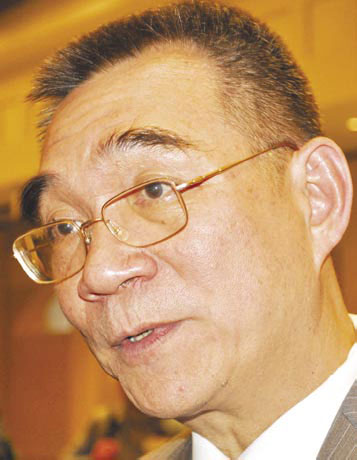Top News
Onus now on rich nations: Expert
Updated: 2011-03-01 10:43
By Lan Lan (China Daily)
|
|
NEW YORK - Rich, developed countries need to step up and invest heavily in infrastructure and clean energy sectors to offset the expected downturn in East Asia's economic engine, said World Bank Chief Economist Justin Yifu Lin.
China set an annual growth target of 7 percent over the next five years, which is lower than the 7.5-percent target set in the previous five years.
Lin told China Daily after a speech to the Council on Foreign Relations in New York on Monday that environmental protection issues, wrestling with social security and China's yawning income gap pose tough challenges to the nation's pace of growth.
Though steady growth in East Asia has been a very important force in the world economy over the past two years, Lin said during his speech that "East Asia now faces some concerns about inflation. The (region's growth) may have to slow down a bit and that's another reason why we need to look beyond East Asia".
"If we want to generate enough demand for investment in the world, we need to have growth in high income countries, as well as other regions," Lin said in his speech.
He said global GDP is projected to grow at 3.3 percent in 2011, 0.6 percentage point lower than in 2010.
A major challenge for the global recovery, he said, is the large excesses in housing and manufacturing sectors in rich, developed countries. High unemployment rates are also a reflection of underutilization within the sectors, he added.
Lin said nations must also tackle heavy capital inflow, which may lead to the emergence of unsustainable bubbles in equity and real estate markets for a number of middle-tier countries.
He advised rich countries to invest their large underutilized capacity to create more jobs and demand to mitigate risks.
The United States' government and financial sector should play a bigger role in putting the world economy back on track toward what Lin called a "new normal" growth.
Lin said infrastructure such as railways, airports, roads, utilities and other basic infrastructure have become outdated in many advanced economies.
He cited the Acela Express, Amtrak's high-speed train between New York and Washington that makes the 220-mile trip in about two hours and 46 minutes.
For that distance, "if you had a high-speed train in China, it will be less than one hour", the economist said.
China has tightened its monetary policy recently and increased interest rates and the reserve requirement ratio for commercial banks. Government officials have said that China's investments in infrastructure during the East Asian financial crisis of the late 1990s, a situation similar to the recent global recession, expanded its highway network from 4,700 km in 1997 to 25,100 km in 2002.
As a result of the investment infusion, Lin said, China's annual growth rate has increased 1.3 percentage points from 9.6 percent in 1979 to 2002, to 10.9 percent in 2003 to 2010.
According to estimations by the World Bank, the greatest opportunities for investment are in developing countries. Developing countries annually require over $900 billion to spend on infrastructure and maintenance.
China Daily
Specials

Earthquake Hits Japan
A massive 8.8 magnitude quake hit the northeast coast of Japan on March 11,2011.

NPC & CPPCC sessions
Lawmakers and political advisers gather in Beijing to discuss major issues.

Pictures: quake aftermath
A massive earthquake hit Japan hard, leaving thousands dead.
